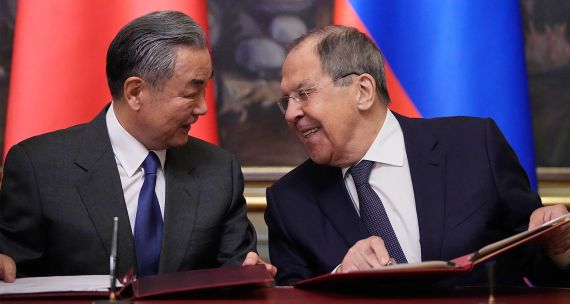In a bid to regulate activities by foreign non-governmental organizations (NGOs), China passed a law April 28, 2016 that sets in place rules to manage the operations of foreign NGOs in China, as well as the relationship between foreign NGOs and China-based domestic NGOs.
The Law of the People’s Republic of China on the Management of Foreign Non-Governmental Organizations’ Activities within Mainland China (or, the Foreign NGO Management Law) comes into effect January 1, 2017 and is in like with similar province-level efforts to regulate NGO activity in China.
The new law has already come under intense international criticism. US Secretary of State John Kerry expressed “deep concern” over the law, linking it to “a larger Chinese crackdown on civil society that is increasing in severity.” Human Rights Watch said, “China gives police unprecedented power to restrict the work of foreign groups in the country.” Canada’s Minister of Foreign Affairs, Stephane Dion, also released a statement noting that he was “deeply concerned” and urging Chinese authorities “to provide a safe, secure and just environment that allows NGOs to operate effectively in China.”
The new Foreign NGO Management Law, and the ensuing condemnation, raises important questions: What is the Chinese government’s intention in passing this new law? What changes will it bring and how will they affect foreign NGOs in China? And, how will this law impact key stakeholders in Canada, namely Canadian NGOs and organizations that support domestic NGOs in China?
What is the Chinese government’s intention in passing the law?
The number and scope of NGOs has shot up in China in recent decades. While the lack of a standardized registration process and the existence of unregistered NGOs make it difficult to measure NGO activity, by one estimate the number of registered NGOs more than doubled between 2001 and 2011, jumping from just over 200,000 to approximately 450,000. Financial support from international partners has become an important source of funding for China’s growing number of NGOs.
This dramatic increase in NGO activity has attracted attention from Chinese officials. Several provincial NGO governance laws have already preceded the new national law. According to research by Jessica Teets, a professor of political science at Middlebury College, these provincial laws reflect different visions of the appropriate relationship between NGOs and authorities. Provincial laws range from a more “supervisory” model, stressing monitoring and direction by authorities, to more “autonomous” models involving NGO collaboration with government agencies and more modest levels of supervision. The Chinese Government has adopted a model closer to the “supervisory” model.
The increased regulation of China-based NGOs is consistent with a broader trend within the Chinese government to discipline its current and potential critics. Domestic NGOs with connections to foreigners, particularly ones venturing into the risky domain of human rights and Chinese sovereignty, have already been the target of state officials. For example, earlier this year Swedish citizen Peter Dahlin was taken into custody and made to confess alleged crimes on state TV. His involvement with the Chinese Urgent Action Working Group, a Chinese NGO that provides legal aid to people alleging human rights violations, was seen by the Chinese government as an attempt to conspire against China.
As far as the Chinese government is concerned, the new Foreign NGO Management Law defines the roles and responsibilities of NGOs and entrenches their place in society. This is clarified by the stated purpose of the bill, which is “to regulate and guide activities conducted by foreign NGOs within mainland China, safeguard their lawful rights and interests, and promote exchange and co-operation.”
To some degree, the new law reflects a fear that foreign interests will foment anti-government sentiment and action. Proponents contend that mass movements, such as Ukraine’s Orange Revolution or the Arab Spring, were funded or orchestrated by foreign interests. By tightly regulating foreign NGOs, the Chinese state seeks to prevent similar challenges.
The Foreign NGO Management Law comes in the wake of other legal initiatives to define and strengthen the power of the ruling authorities. For instance, China passed an anti-terrorism bill in 2015. According to Zunyou Zhou of the Max Planck Institute, the bill grants “enormous discretionary powers to a government that already has broad, intrusive competences.” A draft of China’s cyber-security law has also prompted concern from some observers. Furthermore, prominent social media users, as well the traditional media, have come under increased pressure by authorities who are encouraging them to concentrate on promoting socialist values. Viewed in this context, the Foreign NGO Management Law is one more development that grants authorities new legal tools to monitor and curb activity that could challenge the perceived interests of China’s ruling party.
What changes will the law bring about?
Prior to the law, the activities of foreign NGOs were subject to a patchwork of provincial regulations, ad-hoc rules, and de-facto procedures. Foreign NGOs operating in China required a local partner, and a sponsor in government administration. However, many operated in a legal ‘grey zone’ by registering as a business or not registering at all, with the acquiescence of state authorities.
Chinese state authorities are clearly dominant in the new law, with the Public Security Department under China’s State Council taking the lead in NGO management. Foreign NGOs must therefore register with, and answer to, Chinese state security. The law further requires that an NGO acquire a permit from public security authorities in advance of carrying out many public activities. Authorities will conduct annual inspections, and can seize data, seal offices, and freeze assets.
The law also increases the bureaucratic supervision of standard NGO activity: NGOs will be obligated to submit plans and budgets for the year ahead, both to security authorities and to legal sponsors. There will also be new regulations on NGO financing in which only legally registered foreign NGOs will be allowed to fund domestic individuals or organizations in China.
Initially there was worry that the scope of the law would extend to universities and health organizations. The draft law defined “NGO” as nonprofit and nongovernmental, which could be broadly read to include all entities registered outside China as non-for-profit, tax-exempt nongovernmental institutions. The final draft exempted these types of organizations, but there still remain grey areas on how ancillary associations – like alumni groups – may be effected.
What are the anticipated effects of the law?
Critics see several potential negative consequences of the new law. There is little doubt the law will limit the autonomy of NGOs. Since the bill imposes financial, administrative, and operational burdens, leading to an increase in administrative and operating costs, the abilities of foreign NGOs to engage in activities and respond to civil society needs in China will be further strained. Bureaucratic requirements may prompt foreign NGOs to curtail their operations or to pull out of the country entirely.
Observers also worry about a chilling effect on NGO activity. The law fails to define essential words and phrases such as “activity,” “public order,” and “good morals.” Though the Chinese government says the law “normalizes” the status of NGOs, it leaves state authorities with broad leeway to interpret whether NGO activity is a threat to order and security. Foreign NGOs and their domestic partners may be less willing to challenge state actions for fear of reprisal. In some cases, foreign NGOs may even anticipate a negative review by state authorities and consider not registering or quitting operations in China.
Furthermore, the new law will increase funding uncertainty among partnerships between foreign actors and Chinese NGOs. Many projects supported by foreign NGOs require sustained funding over multiple years. Since partnerships cannot be completed without partners going through a registration process that requires approval from state authorities, current projects could be delayed or dropped, and future projects may not have enough funding to even commence. When an NGO law of similar scope was passed in the province of Yunnan, health NGOs noted that the biggest effect was an added element of uncertainty regarding funding.
Canadian Response
The Foreign NGO Management Law will regulate the activity of Canadian NGOs, commercial interests, and other associations with a Canadian link. Yet, the direct impact of the law still remains unclear. Will alumni associations of Canadian educational institutions be made to register in order to host events in China on a regular basis? Will Canadian companies have to comply with the new rules if they want to engage in local development projects as part of their corporate social responsibility activities? What will be the financial impact of the bill on Canadian non-profits currently operating in China? The answers remain unclear.
It is therefore important for the Government of Canada and relevant organizations to work together to prepare for the law and try to mitigate some of the possible negative consequences. There is still more than half-a-year before the law comes into force. During this time, Canadian government officials, working with like-minded governments and organizations, can seek to clarify interpretations of the law that have been left vague by the drafters. Furthermore, the Government can help make the case that the application of the law should not place excessive financial and regulatory burdens on foreign organizations operating in China.



